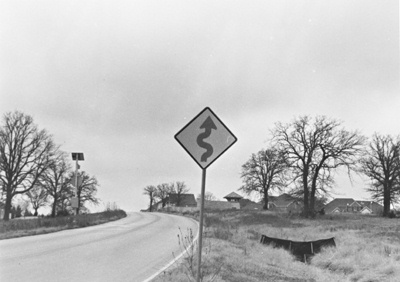All Nonfiction
- Bullying
- Books
- Academic
- Author Interviews
- Celebrity interviews
- College Articles
- College Essays
- Educator of the Year
- Heroes
- Interviews
- Memoir
- Personal Experience
- Sports
- Travel & Culture
All Opinions
- Bullying
- Current Events / Politics
- Discrimination
- Drugs / Alcohol / Smoking
- Entertainment / Celebrities
- Environment
- Love / Relationships
- Movies / Music / TV
- Pop Culture / Trends
- School / College
- Social Issues / Civics
- Spirituality / Religion
- Sports / Hobbies
All Hot Topics
- Bullying
- Community Service
- Environment
- Health
- Letters to the Editor
- Pride & Prejudice
- What Matters
- Back
Summer Guide
- Program Links
- Program Reviews
- Back
College Guide
- College Links
- College Reviews
- College Essays
- College Articles
- Back
Life Without End Is Meaningless
Death is inevitable. Desperately we fight to prolong our lives, to avoid for as long as possible the end we fear so much, but all for naught: for death comes for us all. Yet it is this inevitable end that we dread so much that gives value to life. For the reason we hold on so tightly to life is because we know that there is an end. Each moment of each and every day is given more meaning as a result of this knowledge. “Death is very likely the single best invention of Life”, as Steve Jobs said in his Commencement Address at Stanford University, as it forces us to really savor each and every moment, each and every relationship, for the precious gift it is (Jobs, par. 2). For what is life without an end? Why even begin the great journey if there is no end in sight? Moving endlessly onwards, never ceasing, life would lose its value. In a way, it is the very briefness of life that makes us cherish it so.
In Steve Jobs’ 2005 Commencement Address at Stanford University, he spoke of the ephemeral quality of life and how we must hone in on what is truly important to us while we are still of this earth. “All external expectations,” he says, “all pride, all fear of embarrassment or failure… fall away in the face of death” (Jobs, par. 2). Face to face with the shortness of life, all the intricate excuses we make, all the small fears, that hold us back don’t hold weight anymore. As Jobs pointed out, as we are all going to die, “there is no reason not to follow your heart.” With the limited time we have on this earth, we must take time to make our lives and the lives of others a little better. In Esquire’s article, “Roger Ebert: The Essential Man”, Roger Ebert, a famous film critic, conveyed what he experienced as a result of having cancer and what he learned from it. Coming close to death, he learned that although “some things aren’t as important as they were; some things are more important than ever”(Jones, par. 5). Coming face to face with the shortness of life, Ebert realized what was important to him. Life is short so we must do all we can to make ourselves a little happier and do something to make others a little happier. As Ebert said, “We must try to contribute joy to the world”, for we don’t have a lot of time on this earth. Ebert became aware of the shortness of life and as a result was able to value his time on earth more than he had before.
Imagine walking in a garden and seeing two beautiful flowers. A voice tells you that one of the flowers will always be in bloom while the other will only bloom for this moment and will soon disappear. Immediately you look towards the flower that will soon die. Why? Because the time you have to enjoy this flower is limited therefore it is more precious than the flower that will always be in bloom. Likewise, we value our lives because we know that the time that we have is limited. Our lives are like flowers that bloom for only a moment and as a result we cherish these moments more than if they lasted forever. A life without end would lose its preciousness, its value. Without an end, life would be taken for granted, even more so than now, as it will be something that we will always have. We value life because of death. As Steve Jobs acknowledged, because our lives are short we must make the most out of our time here on earth (Jobs, par. 2). Because our lives are short, because death is inevitable, we value each and every moment we are alive. It is the very briefness of life that makes us cherish it so.

Similar Articles
JOIN THE DISCUSSION
This article has 0 comments.
